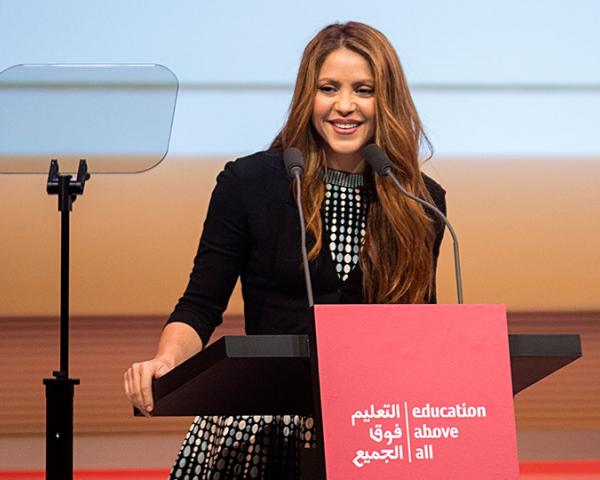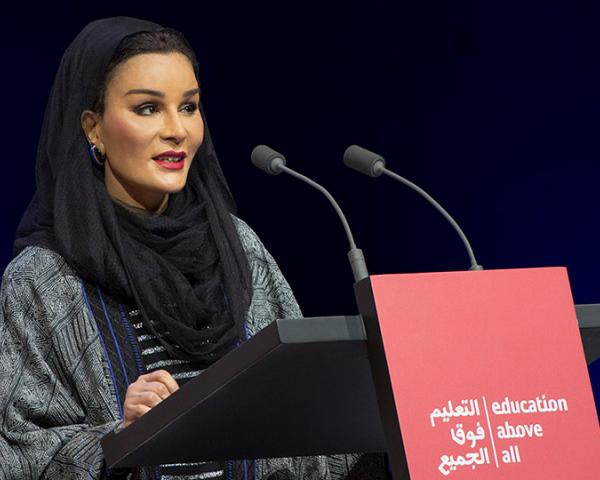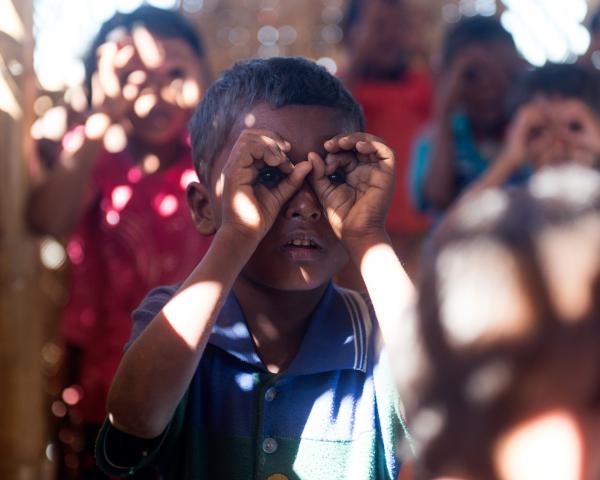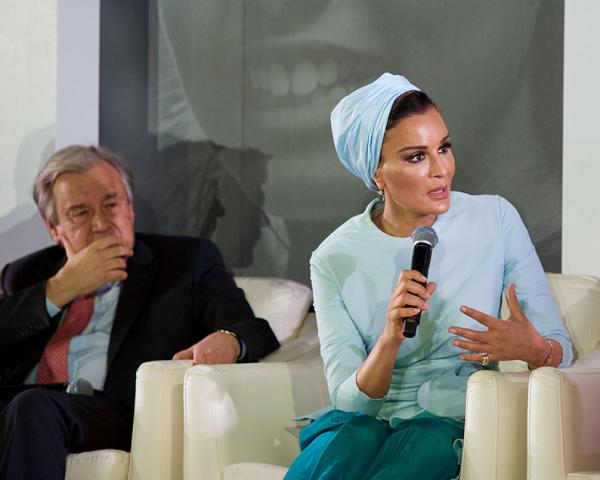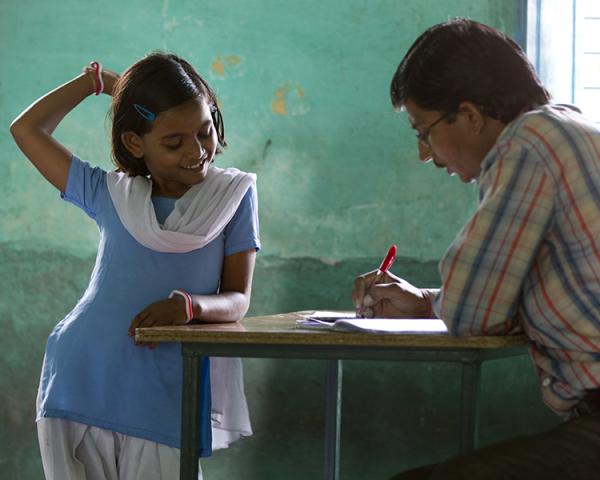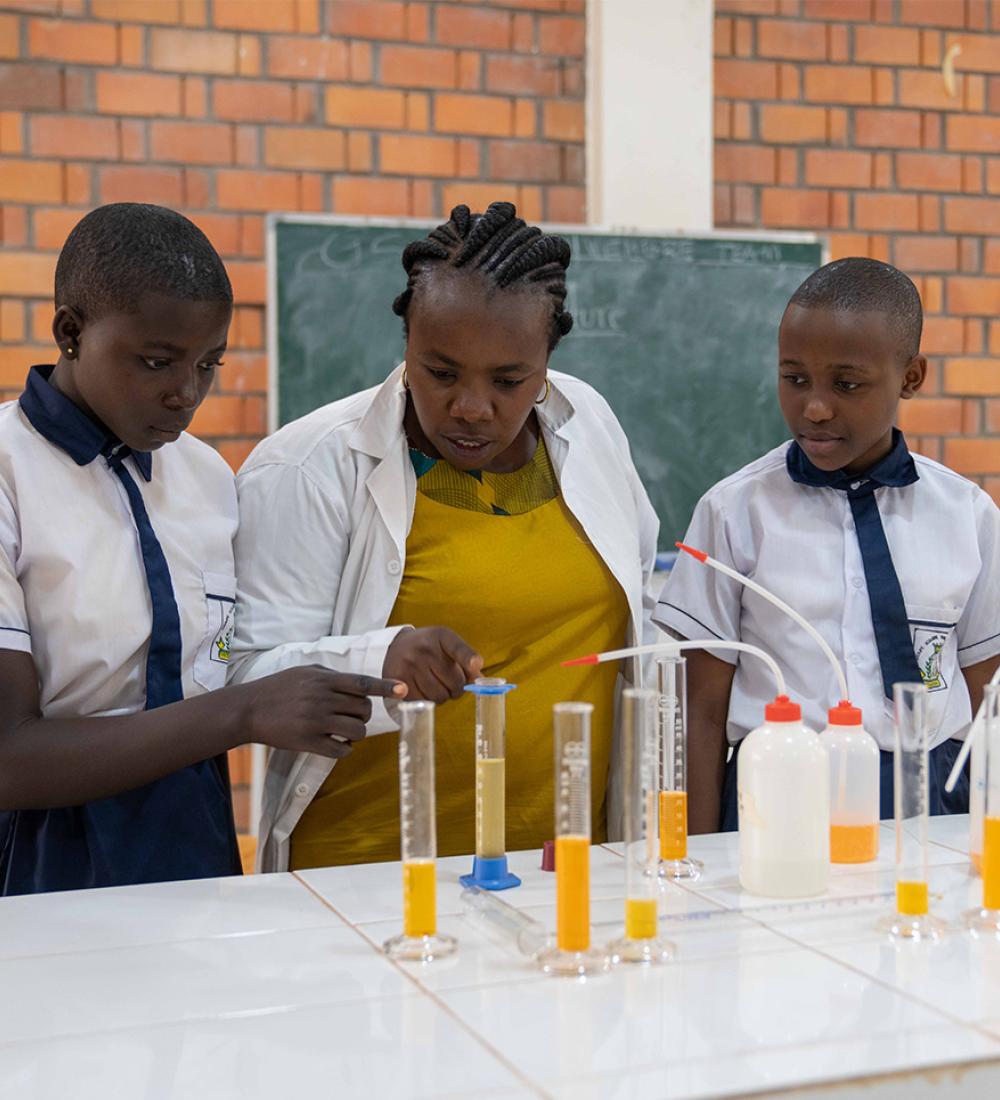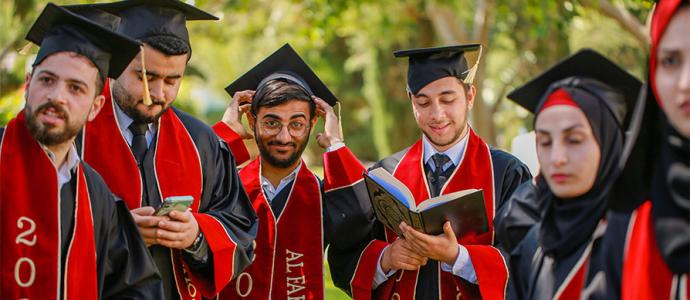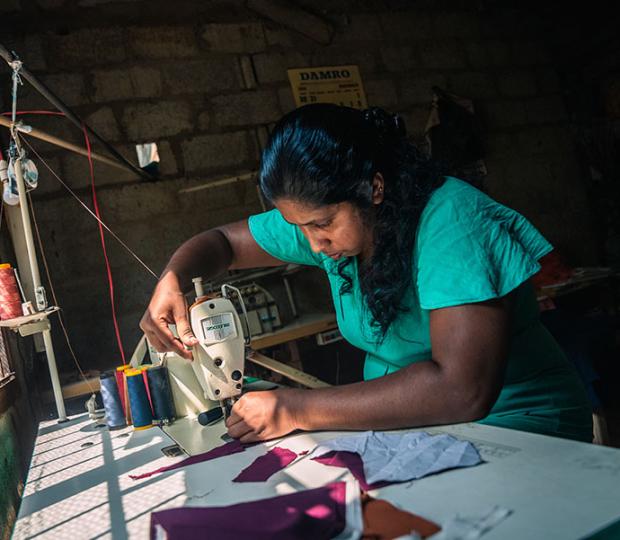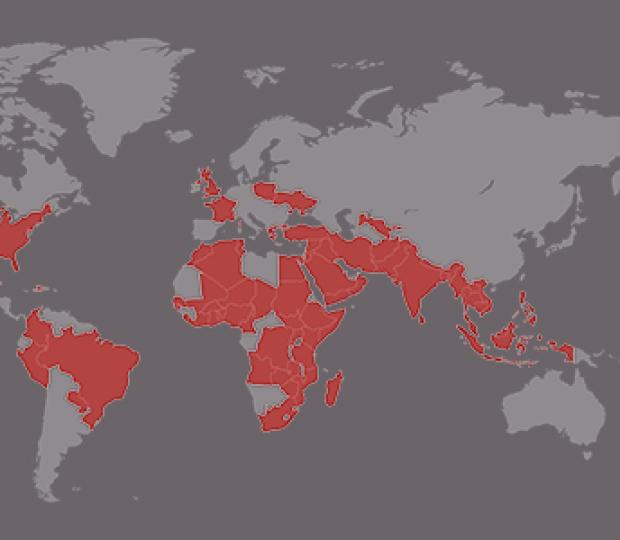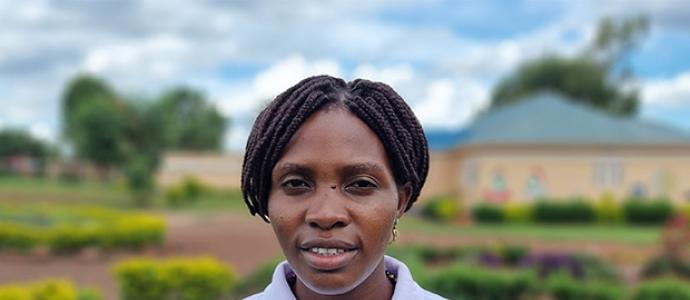EAA @ WISE 2019
Our relationship with WISE leverages this global platform to identify, study and celebrate many innovative approaches to education. We bring this spirit of innovation to life by finding new ways to fulfill our mission to ensure the right to quality education for vulnerable and marginalised people, especially in the developing world.
Follow along on social media as we live tweet and share insight from our WISE sessions.
REWATCH the EAA Plenary: Zero Out of School Children
Twitter: @EAA_Foundation, Instagram: @EducationAboveAll_eaa, Facebook: Education Above All Foundation
EAA Events at WISE 2019
20 Nov., Day 1
1. From Higher Education to Meaningful Employment: Empowering Marginalised Youth to Compete in the Global Economy
Panel - Auditorium 1
Nov. 20; 11:30 am - 12:45 pm
● Ambassador Dho Young-Shim, United Nations World Tourism (Korea)
● Christos Stylianides, European Union Commission (Cyprus)
The global economy is changing; post-secondary education is no longer an advantage, but a minimum requirement for gainful employment. Employers demand versatile, highly-qualified graduates equipped with 21st century skills. For over 25 years, the MENA region has had one of the highest youth unemployment rates in the world. The private and public sectors must work together to align higher education with economic empowerment. By providing innovative employment options, such as attracting corporations to outsource to the MENA region, we empower youth to rise above low-skilled or informal employment.
2. High-Hanging Fruit: Lessons from EAC Partner Projects
Panel - Majlis
Nov. 20; 12:15 pm - 1:30 pm
● Caitlin Sparks, UNESCO Qatar
● Silvia Montoya, UNESCO Institute of Statistics (Canada)
● Mark Roland, Results for Development (USA)
● Md. Shahidul Islam, DAM Bangladesh (Bangladesh)
● Safeena Hussein, Educate Girls (India)
● Savy Lach, Aide-et-Action for South East Asia (Cambodia)
Since its launch in 2012, Educate A Child has partnered to reach more than 10.4 million out-of-school children (OOSC) in fifty countries. This interactive session will consider the OOSC issues from global and field-level perspectives. The speakers will highlight challenges in accessing accurate data on OOSC, and implications for planning and policymaking. The session will present innovative strategies used to locate and secure data for primary school-age OOSC by selected EAC partners in Bangladesh, Cambodia, and India.
3. My Forced Identity: How the forces of conflict and war shape the identity of youth in the MENA region?
Panel - Majlis
Nov. 20; 1:45 pm - 2:30 pm
● Maya Ghazal, UNHCR Advocate for refugee rights (UK)
● Athar Ahmed, Al Fakhoora Alumni (Gaza)
● Ahmed Abu Moghessib, Al Fakhoora Alumni (Gaza)
● Sara Al Ramlawi, Al Fakhoora Alumni (Gaza)
The panel will endeavor to highlight perspectives of youth, past, present and future. It will examine how being born and/or raised in conflict shapes their present and future identities. The hope is that the discussion will open dialogue around how we can prepare for what will come next and ensure that refugee youth do not become a lost generation forced only to bear an identify borne by war.
4. From Conflict to Cohesion
Panel - Majlis
Nov. 20; 4:15 pm - 5:30 pm
● Mariam Al Sersawi, Al Fakhoora Alumni (Gaza)
● Samy Naim, Al Fakhoora student (Gaza)
● Nima Ashour, Al Fakhoora student (Gaza)
● Ahmed Alrantisi, Al Fakhoora Alumni (Gaza)
This session is designed and led by students from Gaza and Syria who have completed Al Fakhoora’s inspirational civic engagement program. Participants will discuss the importance of 21st century skills, social-emotional learning, and fostering a positive attitude essential for rebuilding their homes and promoting cohesion among refugees and host communities. Come and meet some of our most inspiring students who, despite the challenging environments they live in, have become change makers who motivate and drive their peers, families and the wider community.
21 Nov., Day 2
1. Plenary: Zero Out of School Children
Plenary and panel discussion - Theatre
Nov. 21; 9:30 am - 11:30 am
● Her Highness Sheikha Moza bint Nasser (Qatar)
● Folly Bah Thibault, Al Jazeera English (Qatar)
● Shakira, UNICEF Ambassador (USA)
● H. E. Graca Machel, SDG Advocate (South Africa)
● H.E. Silviana Lopez Moreira, First Lady of Paraguay (Paraguay)
● Michael Pollack, Educate Girls (USA)
● Stephen Katende, Building Tomorrow (Uganda)
This plenary session marks another milestone for Educate A Child toward achieving universal access to quality primary education (UN SDG4), noting that EAC and its partners have identified and educated the most marginalized out-of-school children (OOSC). The panel will emphasize the persistent need to reach those young people whose right to education remains unfulfilled. It will outline details of EAC’s ultimate challenge in selected countries that are approaching universal primary school enrolment, the ‘high-hanging fruit’.
2. Live Art Sessions
Interactive art session - Majlis
Throughout Nov. 21
Youth Advocates and Artolution will be facilitating interactive live art sessions at the majlis. The sessions are open to WISE attendees. The sessions will culminate in a WISE mural that depicts the connection between art and education advocacy.
3. Taking it beyond words: Youth advocacy through art and sports for the right to education
Panel - Majlis
Nov. 21; 11:15 am - 12:45 pm
● EAA Youth Advocates
This session, led by the EAA Youth Advocates, will provide a platform for young people to share their stories in turning ideas into action to help achieve universal access to quality education (UN SDG4), and ultimately all of the UN Sustainable Development Goals. Participants will be invited to join interactive advocacy activities for arts and sports education, in support of EAA’s global campaign, edvOcate.
4. GEM Report Migration, Displacement, and the MENA region: Building Bridges, Not Walls
Panel - Auditorium 1
Nov. 21; 11:30 am - 12:45 pm
● Dr. Manos Antoninis, UNESCO GEM Report
● Zahra Babar, Georgetown University Qatar (Qatar)
● Khaled Khalifa, United Nations High Commission on Refugees Gulf Cooperation Council
● Shaikha Al Khater, Ministry of Administrative Development Labor and Social Affairs (Qatar)
● Guilia Marchesini, The Center for Mediterranean Integration (France)
● Dr. Philippe Fargues, European University Institute (Italy)
● Robert Schuman Centre for Advanced Studies (Confirmed)
The 2019 Arab States Global Education Monitoring Report (GEM) is introduced in this session in collaboration with Education Above All. The panel will discuss the impacts of displacement and migration on education systems in the region. What practical actions can be taken to support education systems and lift barriers refugees and other migrants face? How is education impacting regional migration trends, and how can education be made more accessible and effective for refugees?
5. MENA Youth Capacity Building in Humanitarian Action Opening (MYCHA)
Panel - Auditorium 2
Nov. 21; 11:30 am – 12:45 pm
● Elias Ayoub, Global Director, Right to Play (Canada)
● Simon O’Connell, Executive Director, Mercy Corps (United Kingdom)
● Al Tayeb Adam, Residential Representative, UNICEF Gulf Office (Sudan)
This panel aims to engage and inspire the 150 youth who are preparing to join an intensive MENA Youth Capacity Building in Humanitarian Action (MYCHA) training on the realities of working in the humanitarian assistance ecosystem. The moderated discussion is comprised of three parts: engaging young people in humanitarianism as a form of active local and global citizenship; exploring culturally sensitive approaches to enable young women to participate in various contexts; and hearing from young people themselves about the challenges they face.
6. Learning for humanity: A new training module for Introducing Youth to Humanitarian Action
Workshop - Majlis
Nov. 21; 1:00 pm - 1:45 pm
● Esker Copeland, Education Above All (Qatar)
● Omran Musa, United Nations Major Group for Children and Youth (Qatar)
● Brunel Etienne,
Over the past three years, ROTA has worked alongside leading agencies in the humanitarian aid sector to develop tools and resources related to the MENA Youth Capacity-Building in Humanitarian Action (MYCHA) Initiative. In this workshop, participants will be presented an overview of the newly developed Facilitator’s Guide for Introducing Youth to Humanitarian Action. This is an innovative, youth-focused tool designed to improve young people's ability to take action in crisis-affected contexts. Participants will be invited to join an interactive discussion on imparting global citizenship values among youth affected by crisis.
7. Artolution: Creative art advocacy for the right to education around the world
Panel - Majlis
Nov. 21; 2:00 pm - 3:00 pm
● Joel Bergner, Artolution Founder (USA)
● EAA Youth Advocates
In this creative arts workshop, participants will hear a short informative session on human rights with a focus on the right to education. Participants will then express through art their understandings of the right to education, and how they see its implications for communities and for the world. They will be invited to draw and paint on a large wall canvas to express and depict their perspectives on the impact and outcomes of education.






